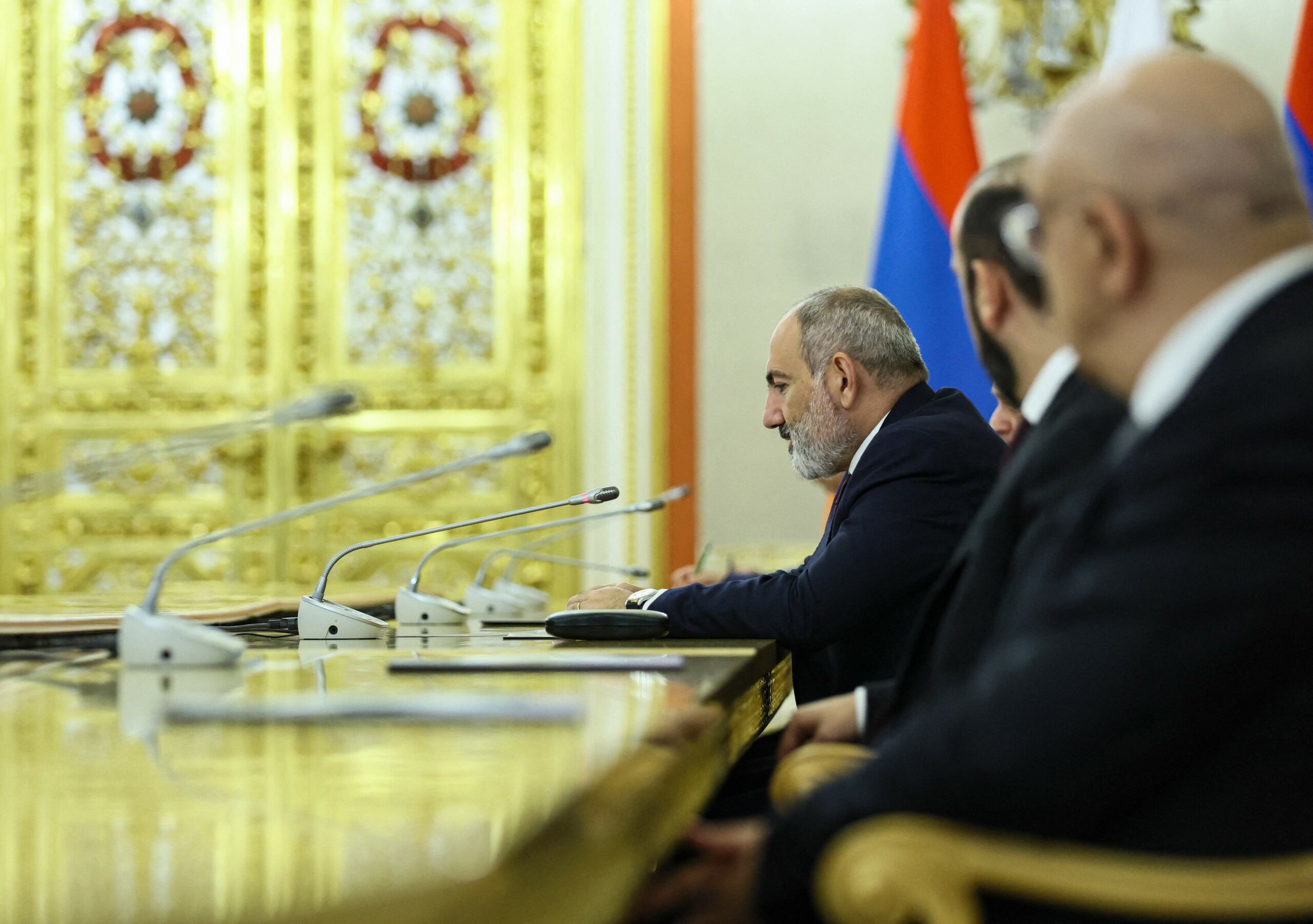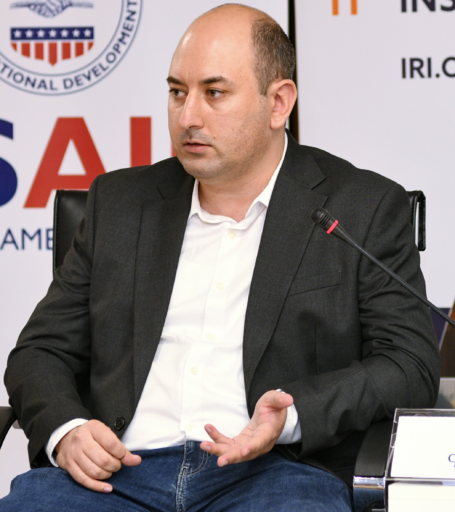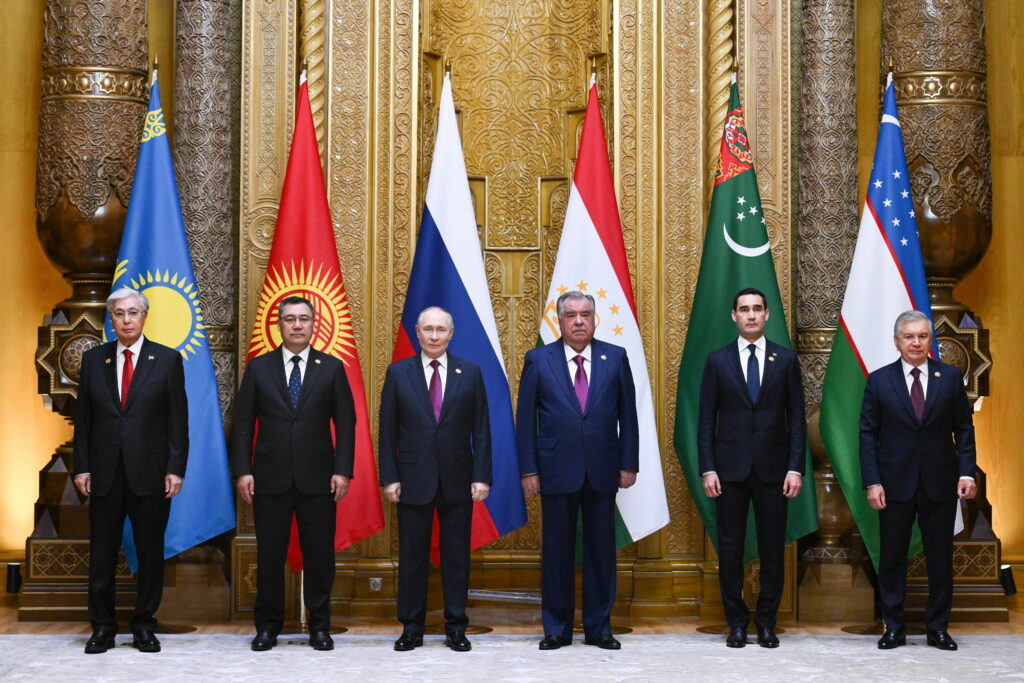Armenia and Russia have shared a close, complex relationship for decades, with Russia serving as Armenia’s main security and economic partner. But, recent events—particularly the ongoing war in Ukraine and renewed tensions in the South Caucasus—are straining this relationship. As Moscow’s attention has moved towards Ukraine, its influence in the region has weakened, and Armenia has started to feel the effects.
The shift in Armenia’s geopolitical stance has been driven by Russia’s security shortcomings following the 2020 Nagorno-Karabakh War ceasefire. Russia allowed Azerbaijani forces to advance in violation of the ceasefire agreement, enabling it to use military escalation as a tool of political pressure. Azerbaijan capitalized on the regional power vacuum created by the war in Ukraine, pursuing aggressive policies on the ground that led to escalations in Nagorno-Karabakh and Armenia, including a large-scale attack in September 2022 on Armenian territory, targeting major towns and occupying parts of Armenia’s sovereign land. Armenia appealed to the Collective Security Treaty Organization (CSTO). The CSTO rejected Armenia’s request for assistance and instead announced it was willing to send a monitoring mission to Armenia. The CSTO’s failure to condemn Azerbaijan’s attack outright angered Yerevan and further deteriorated Armenia’s relationship with Russia and the organization.
In 2021, Armenia signed an arms deal with Russia, but after the invasion of Ukraine, Moscow failed to deliver the already-paid-for weapons, leaving Yerevan with limited resources to counter Azerbaijani aggression. Russia was also unable to uphold its commitments under the 2020 ceasefire agreement, remaining passive as Azerbaijan imposed a nine-month blockade on Nagorno-Karabakh beginning in December 2022, which cut off essential supplies like food and medicine and eventually blocked Red Cross humanitarian aid.
The breaking point came with Russia’s inaction during Azerbaijan’s offensive on Nagorno-Karabakh in September 2023. This operation resulted in the forced displacement of the entire Armenian population from the region—an outcome that Russian peacekeeping forces were specifically deployed to prevent. The failure of these forces to fulfill their mandate left a significant impact on Armenian-Russian relations and highlighted the vulnerabilities in Armenia’s security arrangements.
Considering these developments, together with ongoing and increasingly complex security concerns, the Armenian government has been compelled to comprehensively reassess its strategic positioning. This reevaluation has led to a cautious but deliberate effort to expand Armenia’s diplomatic relations. The country has begun to tentatively reach out to new partners on the international stage, with the primary objective of diversifying its foreign policy options. This approach reflects Armenia’s recognition of the need for a more balanced and resilient foreign policy framework to navigate the challenges of its geopolitical environment.
Russia, for its part, wants to keep Armenia within its Russia-led alliances, and not deepen its relations with the West. Crucially, Russia is invested in Armenia remaining within regional frameworks such as the Eurasian Economic Union (EAEU) and the CSTO. It also wants Armenia to participate in regional frameworks for peace talks with Azerbaijan, rather than Western formats for negotiations, in order to further obstruct a growing Western influence in Armenia.
Armenia’s Diversification Efforts
Armenia has effectively frozen its CSTO membership. This shift includes Prime Minister Pashinyan’s refusal to sign the final declaration of the CSTO summit held in Yerevan in 2022, declining a CSTO monitoring mission on the Azerbaijan border, boycotting CSTO meetings, stopping its financial contributions to the CSTO, declining quota positions within the organization, and refusing to participate in or host CSTO military drills. Armenia also opted out of the CIS Summit, signaling a broader reevaluation of its regional alliances.
In pursuit of alternative defense partners, Yerevan has established significant ties with India, which has since become Armenia’s primary defense partner. France has also emerged as a key partner, supplying Armenia with advanced military equipment and opening up opportunities for more defense cooperation with the West. According to Armenia’s Security Council Secretary Armen Grigoryan, Russia’s share in Armenia’s arms purchases dropped from 96% in 2021 to less than 10% in 2024, marking a major pivot in Armenia’s defense procurement. Additionally, the European Union has deployed a monitoring mission along Armenia’s borders with Azerbaijan, serving as a deterrent against aggression from Azerbaijan.
This shift has also enabled Armenia to implement policies toward Russia that were previously unimaginable. These include the removal of Russian FSB border guards from Zvartnots International Airport and from the border with Azerbaijan. Recently, Armenia has also replaced the FSB checkpoint at the Iranian border crossing with its own.
Russia has taken notice of Armenia’s evolving stance, growing more wary of Yerevan’s new direction. Armenia now finds itself at a crossroads, balancing its historical alliance with Russia against a pressing need to seek broader, more dependable support in an increasingly uncertain geopolitical landscape.
Balancing Act: Armenia’s Foreign Policy
Armenia’s recent foreign policy shift has sparked speculation, with some analysts calling it a «pivot towards the West”—a characterization that may be overly ambitious. Two factors limit Armenia’s options. The first is its structural dependency on Russia, which not only persists but has deepened in certain areas, especially trade and energy. Bilateral trade has surged from $ 2.6 billion in 2021 to $ 7.3 billion in 2023, contributing to significant economic growth. That is largely due to parallel imports and exports.
In terms of energy, Armenia’s reliance on Russia remains extensive. In 2023, 86.6% of Armenia’s natural gas imports and 70% of its petroleum oils came from Russia. Additionally, Armenia’s primary domestic electricity source—its nuclear power plant—relies on Russian fuel and waste disposal services. Armenia’s food security is also closely tied to Russia, as 70% of its wheat imports, of which 99% come from Russia, highlight its dependence.
While Armenia faces unprecedented political and security challenges, its economic ties with Russia are flourishing. Russia, for its part, appears less inclined to penalize Armenia’s political diversification efforts as long as Armenia remains within the Eurasian Economic Union. Given these deep-rooted economic dependencies — and the immediate and significant economic damage that an exit could incur — makes any serious shift toward EU integration unlikely in the near future.
The Armenian government is pragmatically differentiating between its political and economic relationships with Russia. Prime Minister Pashinyan continues to engage in EAEU meetings, while actively boycotting the CSTO. During an EAEU session, Pashinyan even suggested that the organization «shouldn’t be politicized”—an ironic remark given that the EAEU was conceived as a geopolitical project.
Another constraint on Armenia’s foreign policy choices is its changing regional context. For years, Armenia was the only South Caucasus country seeking closer ties with Russia. Now, it stands alone in pursuing deeper connections with the West, particularly evident since Georgia’s ruling Georgian Dream party secured its hold on power in recent parliamentary elections. Around two months ago, Pashinyan stated that the outcome of Georgia’s elections would influence Armenia’s decision-making—a sign of how regional developments are informing Armenia’s reflexive approach.
These regional dynamics have already influenced Armenia’s foreign policy tone, pushing it toward a more balanced stance. The Armenian government is carefully navigating between Western aspirations and regional alliances, as seen in its participation in forums like the 3+3 meeting and the BRICS summit in Kazan. This policy of parity characterizes Armenia’s current ad hoc adaptation to the evolving geopolitical context.
Given the current situation, Yerevan is likely to continue taking small, practical steps to reduce its overreliance on Russia, such as gradually removing Russian border guards from sections of its state border, particularly while Moscow is preoccupied with the war in Ukraine. Politically, tensions with Russia are expected to persist due to Moscow’s diminishing role as a reliable regional power broker. However, Armenia will likely seek ways to manage these challenges in a more pragmatic manner.
While Armenia will aim to decrease its dependence on Russia in critical sectors with Western support, its existing level of reliance remains too significant to address overnight. Diversification will require a gradual, measured approach as Yerevan balances immediate security needs with long-term strategic shifts.











